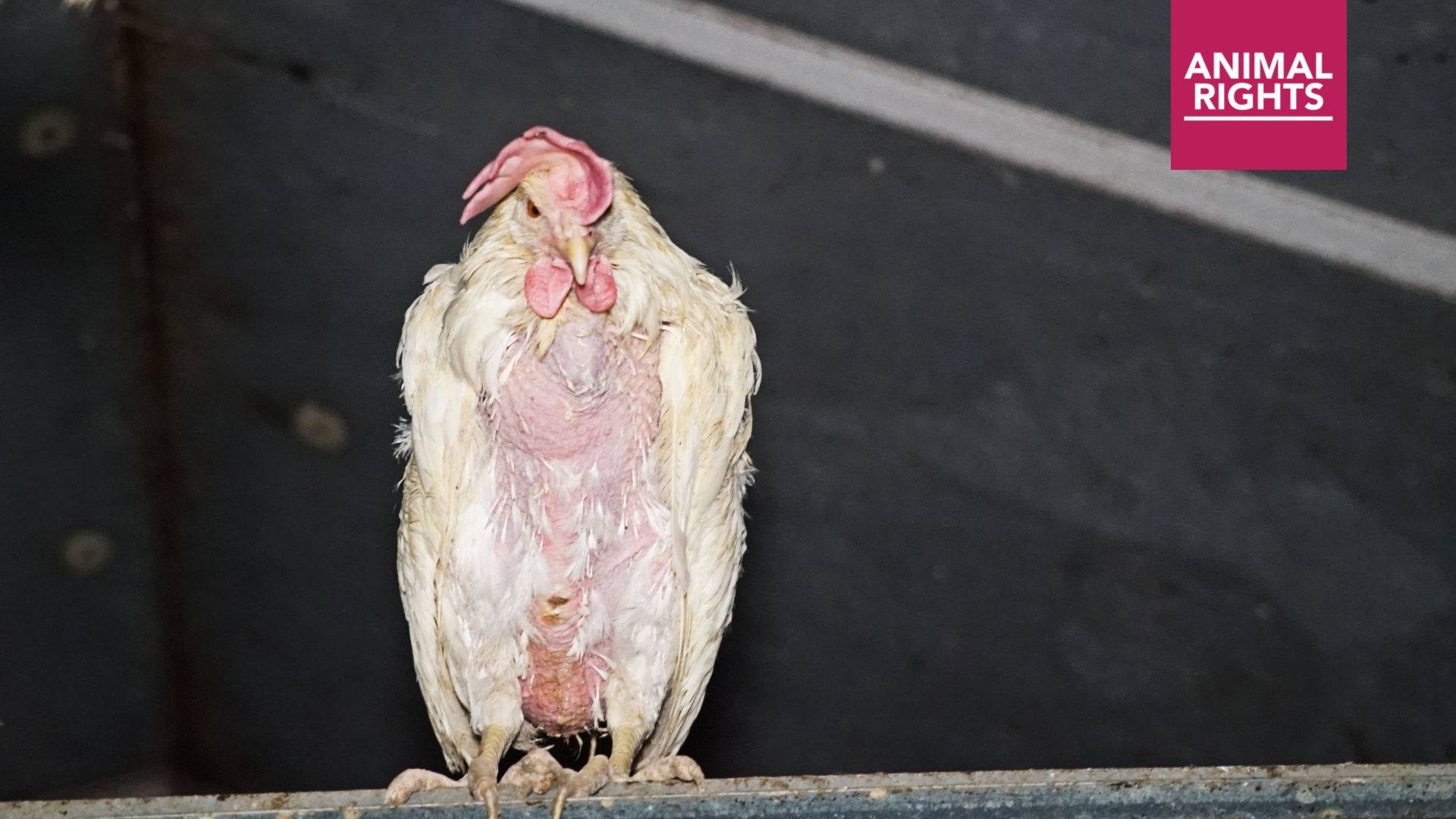Party for the Animals enforces debate on the suffering of animals in the livestock industry
On the Party for the Animals’ (PftA) insistence a big debate will be held in the Dutch Lower House on the suffering and dying of animals in the livestock industry. PftA’s parliamentary leader Esther Ouwehand: “A radical change of course is needed, involving a transition to an agriculture in which we do justice to animals.”

A chicken in a Dutch “horror stable” (picture by Animal Rights)
The debate will be held on the 24th of January next. The Dutch Party for the Animals wants to use this debate to force the Minister of Agriculture and colleague politicians to take a good look at themselves: when is the line crossed in terms of animals suffering in the livestock industry?
Several reports show structural malpractices in Dutch livestock farming. Last week it appeared that sows are so severely overbred to farrow as many piglets as possible that millions of piglets are suffering badly in the maternity barn. Ten years ago, the sector promised to push back piglet mortality, but those figures only grew after that. Additionally, the air in pig barns is so poisonous that more than half of the pigs in the Netherlands catch pneumonia.
The animal rights organisation Animal Rights recently published a series of videos of Dutch barns. Those prove that the reality for animals is completely different than what the livestock industry, supermarkets and government make it look like: bald and weakened chickens, which can hardly walk, among dead species in barns. Piglets and their mothers live above their own excrements on a concrete slatted floor in unfurnished, often dirty cages. The Association of Dutch Veterinarians ‘Caring Vets’ confirms that these type of practices are no exception but normal in everyday life in the livestock industry.
Esther Ouwehand of the Party for the Animals wants to have some crucial questions answered in the coming debate: “The key question is: How can those practices be legal? The follow-up question is: If this is legal, why are people not allowed to see it? Certainly if you make the customer responsible, you have the duty to inform them truthfully and completely about where their animal products come from. For that reason, the Minister must 1) acknowledge that there is a gigantic gap between the picture presented and reality in livestock farming and 2) to distance herself from the tactics of the sector to criminalise messengers such as Animal Rights. The right to information is a core value in a democracy.”